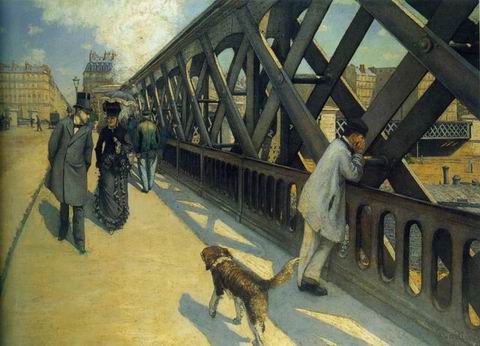Ok. Rested. Let us dissect. "Vergangheit"= the condition of being in the past. "bewusstsein" = consciousness. So you guessed it. I'm going to mutter about Historical Consciousness for you.
We Americans have the privilege/disadvantage of being one of the newest nations in the world. Several countries have sprouted up in the past 250 years, but, according to big-headed academics, the respective nation has always existed; the political borders are just beginning to coincide with those of nations (think about that mess in the former Bosnia/Herzegovina from the '90s.) Granted, this supposition brings up many questions which these same big-headed academics will debate until times' end, such as "what makes you say that the US has a single national identity if it's made up of such a variety of ethnic, religious, and social groups?" but I'll leave that to those big-headed peeps in the Ivory Tower, or at the very least save it for another blog. Maybe.
So, the USA and it's new-ness. Our dear forefathers took the liberty of squashing, the indigenous lifestyles of the "native Americans" and spreading this "foreign American" culture (read: various European cultures) from sea to shining sea. These patriots became so concerned with their civilized lifestyle that the world was basically made anew. Therefore, for us, "old" is something from colonial times, roughly mid 17th century, but anything built "pre-war" is old enough for us.
So, Europe and it's old-ness. It's the "old country" from which our ancestors were expelled for whatever reasons. Old for Europeans is stuff from the Middle Ages (or, for the Mediterranean, even earlier.)
So, our consciousness. The old houses, churches, etc. in the USA are now national parks. People drive hours to a parking lot and walk a seemingly endless trail to this destination, take pictures, marvel at its preserved state and gawk. This is fine and dandy. I'm all for preservation. But now that I have history living in my front yard, It's pretty interesting to see how the old world sees its history.
Standing above the city is a fortress from the 14th century. It was the reason the city existed. The prince-bishop resided there, the town existed to serve the prince-bishop through the feudal system of allegiance.
A bit further down the road sits the ornate baroque palace to which the prince-bishop moved during the 19th century. Würzburgers interact almost daily with this behemoth from their commute ("Dangit, why didn't they make this opening wider! I don't want to wait for the stupid bus to go through first!") to their parking place ("Oh look! The Residenz has 40 parking places open!") to their party-grounds ("Hey, honey! There's a band playing on the Residenz plaza today! Let's go!). Do you think this lends one to lose a sense of his history because he is exposed daily to its remnants? Do these remenants stay around for a significant purpose, or do we just like pretty things?
So what is history for us? Is our history that which makes us what we are? Or are we simply a people without a history, the perpetual wanderers in this modern world? Or are we a people of a shared history that simply takes place somewhere else? Do we really find pride in the defeat of the Swedes in Franconia during the 15th century, or do we instead pride ourselves in our unity and diversity today?



No comments:
Post a Comment